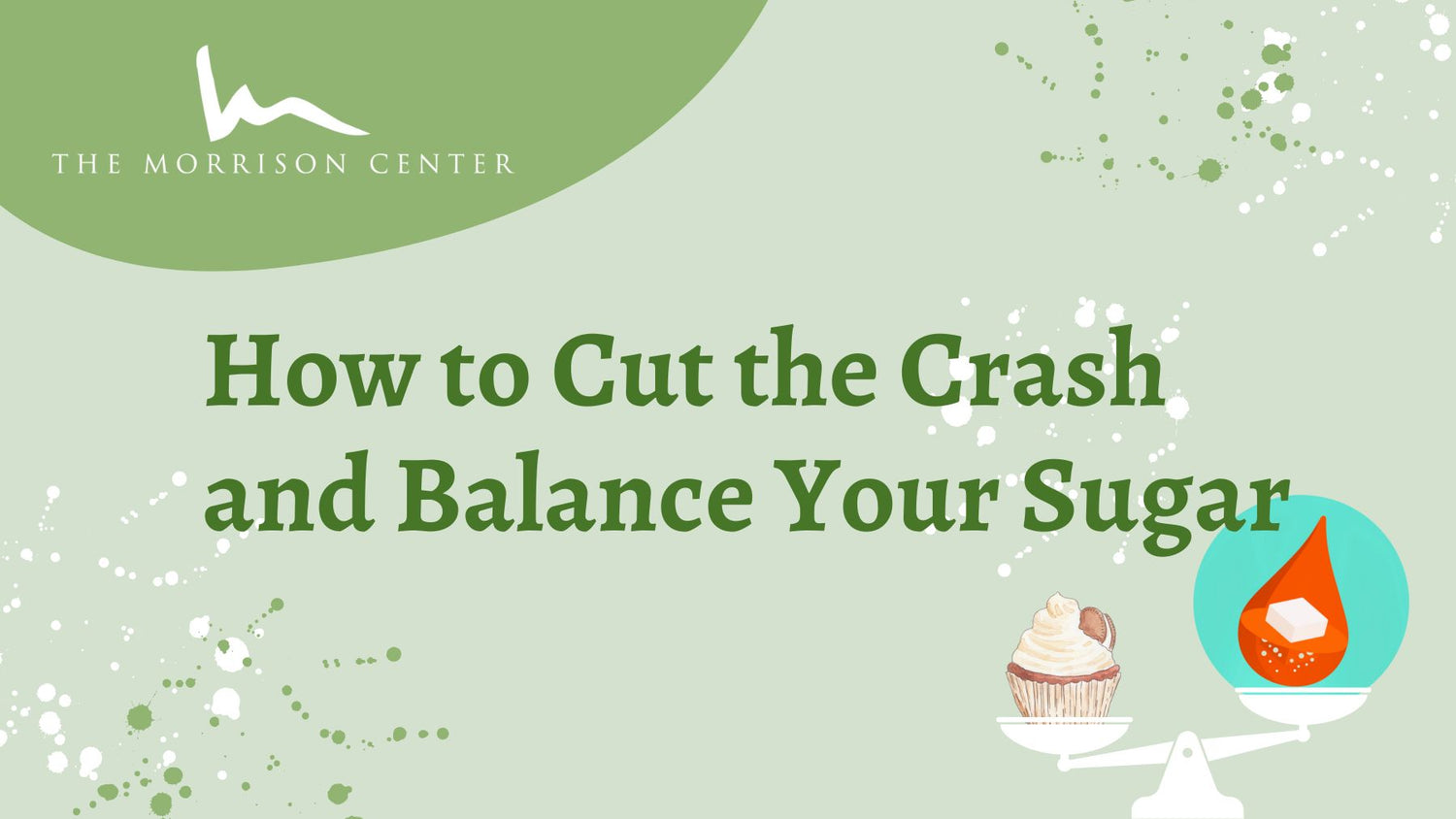Earlier this month, we shared insights from Dr. Morrison about high blood sugar and insulin resistance – the causes, effects, signs, tests, and best strategies for getting ahead. As the seasons shift from winter to spring, it’s a perfect time to talk about the other side of blood sugar control: keeping it balanced and even.
Ever had a sugar crash? If you have kids, you probably see it all too often! When we ingest a helping of simple carbs, insulin rises and pushes the sugar into our cells. This brings a surge of energy that burns out quickly, like gasoline on a fire. But insulin is slow to ramp down, and keeps using up blood sugar until we have less than we started with – the crash. This is sometimes called reactive hypoglycemia.
For optimal blood sugar, we don’t want it too high or too low. In addition to the signs and tests we discussed in our last newsletter, some ways to tell if you might be experiencing blood sugar fluctuations include:
- You get sleepy and fatigued or have difficulty concentrating 1-4 hours after a meal.
- You experience shakiness, irritability, a fast or irregular heartbeat, anxiety, sweating, or headache when you haven’t eaten in a few hours.
- Glycomark is a specialized blood test to check for blood sugar variability, particularly if your overall average blood sugar is high.
Blood sugar fluctuations are stressful for the body. But stress itself can also cause sugar trouble. Dr. Morrison calls our stress hormone, cortisol, the non-dietary source of carbs, because it drives up blood sugar, insulin, and appetite on its own!1 Ever found yourself stress-eating? We understand. Testing your salivary diurnal cortisol can help show the role that stress is playing in your blood sugar and appetite.
The low-carb meal plan is Dr. Morrison’s tried-and-true foundation for healthy blood sugar. Call us to schedule with our nutritionists for help with planning your diet! And, here are some of Dr. Morrison’s favorite tools and tips to level the spikes and crashes:
- Practice slow, mindful eating. Slowing down can reduce blood sugar swings after a meal, as well as allowing us to fully experience our food with our senses and practice gratitude for those who brought it to our plate. Here’s a 2-minute inspiration for your next mindful meal!
- Space your meals evenly for steady blood sugar and energy throughout the day. Especially, reduce carbs at dinner, which can cause blood sugar swings overnight and contribute to insomnia.
- Increase dietary fiber, from vegetables, legumes, and low-carb grains like quinoa or millet, to slow the absorption of calories and support lasting energy between meals. Add Daily Benefit Fiber with the extra power of green tea, cinnamon, and astaxanthin for reducing blood sugar spikes and sugar-induced oxidative stress.
- Buffered Vitamin C is another powerful protection against oxidative stress, and research even shows that low vitamin C increases the risk of diabetes.2 Check your levels with a nutritional blood test to be sure you’re supplementing right.
- To buffer the effects of stress on blood sugar, try Cortisol Manager. Also, our favorite 200mg of Zen not only helps to reduce anxiety, but may reduce blood sugar directly by suppressing the sugar-raising hormone glucagon.3 To go deeper with stress, Reiki can balance the stress energy that drives cortisol and blood sugar dysregulation. Call us to schedule your appointment with reiki master Sarah!
References:
- Bini J, Parikh L, Lacadie C, et al. Stress-level glucocorticoids increase fasting hunger and decrease cerebral blood flow in regions regulating eating. NeuroImage Clin. 2022;36:103202. Retrieved from: https://www.ncbi.nlm.nih.gov/pmc/articles/PMC9486604/
- Sun H, Karp J, Sun KM, Weaver CM. Decreasing Vitamin C Intake, Low Serum Vitamin C Level and Risk for US Adults with Diabetes. Nutrients. 2022;14(19):3902. Retrieved from: https://www.ncbi.nlm.nih.gov/pmc/articles/PMC9573084/
- Gu L, Cui X, Lin X, et al. γ-aminobutyric acid modulates α-cell hyperplasia but not β-cell regeneration induced by glucagon receptor antagonism in type 1 diabetic mice. Acta Diabetol. 2023;60(1):19-28.
About the Author:
Jonah Udall is a nutritionist, herbalist, and functional medicine practitioner in-training, earning his Masters of Science in Human Nutrition and Functional Medicine at University of Western States. Chronic health challenges taught him the importance of seeking root causes, celebrating the individual, and finding collaborative paths to vibrant health with nature’s medicines. Jonah is also a professional musician and movement artist and a certified Deep Listening instructor.



Leave a comment